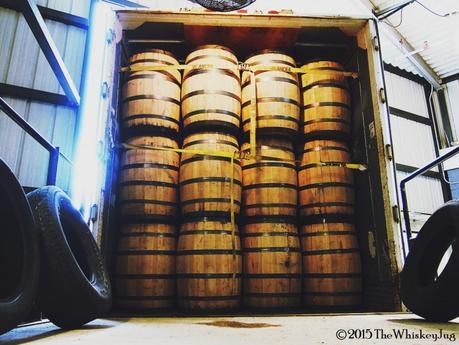
The blunt answer is because they promote ignorance. I could point to a whole slew of articles over the last few months that, after reading them, I wanted to slap my forehead and yell “Did you even bother Googling Bourbon?!?!” or Scotch or Irish Whiskey or whatever. It’s as if they’ve never even heard of Wikipedia and so instead of laying out facts they just make stuff up or word it in a way that ends up being woefully misleading.
In almost every instance the writer could have come off sounding far more knowledgable and actually promoting education instead of ignorance if they’d just taken 2 seconds to Google what they were talking about. To illustrate my point more succinctly I’m going to use a recent article from the Washington Post (linked below) about bourbon’s boom and the need for barrels.
Googling “bourbon barrel life” would have helped -> Why bourbon’s incredible popularity might actually be a problem http://t.co/la5GFyrLJN
— The Whiskey Jug (@TheWhiskeyJug) May 13, 2015
In this article Roberto A. Ferdman starts off by talking about how the housing crash from a few years ago and Chinese furniture making has caused so many loggers and forestry operations to go out of business. This in turn is now making it harder for barrel makers to source wood. It’s a decent start and, in-fact, the article isn’t too bad until we hit the last four paragraphs where it all falls apart because Roberto didn’t take 2 seconds to Google “what happens to used bourbon barrels”.
How do I know this? Because, if he had, he would have had a plethora of links at his disposal telling him what happens to bourbon barrels after bourbon distilleries are done with them and he wouldn’t have written this:
Unlike barrels used to age other spirits, including tequila, those used for bourbon are also never used twice, complicating the issue further.
Umm Roberto… tequila is often aged in ex-bourbon barrels. So is rum and other whisky like this little thing called Scotch. I know it holds a tiny market share and is hard to find, so you might not have heard of it, but distilleries in Scotland re-use bourbon barrels 2+ times putting them in service for decades. Decades Roberto… DECADES. Bourbon barrels are used more than twice, not thrown away as you suggest, and are increadibly important in the beverage and condiment industry.
The way that line should have been written is “By law, bourbon must be aged in new charred white oak barrels so the bourbon industry can’t reuse it’s barrels. However, those barrels then go on to age other things such as rum, tequila, other kinds of whisky, beer, coffee beans, hot sauce and maple syrup to name a few.” Instead he just backs up his “gotcha” statement with a quote from someone mentioned earlier in his article.
“The barrels have limited use,” said Johnson. “Since they can’t be used endlessly, that definitely adds to the problem.”
In barrel form no, he’s right, they can’t. After being reused to age whisky and other spirits for up to 70 years the barrel is of use no more. Though even after they’re no longer of any use to the beverage industry the barrels aren’t just chucked in a landfill and thrown away. There isn’t a giant barrel graveyard hanging out somewhere. The wood gets used to make things like furniture, flooring, wood paneling, fire wood, packaging material, landscaping mulch and more.
I swear, sometimes it feels like every editor in the USA has issued an edict that bourbon or whiskey must be used in an article at least once a week no matter what. I’m so sick of seeing these kind of articles that either either miss huge facts or willfully mislead people all in the name of trying to grab a headline because whiskey is hot right now. It doesn’t further journalism or our collective knowledge, all it does is promote ignorance and you end up with comments like this.

And that’s just the one person who took the time to login / make an account and post that. How many other people walked away thinking the exact same thing? My only hope, and it’s a small one, is that unlike the author they know how to use Google and answered the questions they walked away with themselves.

